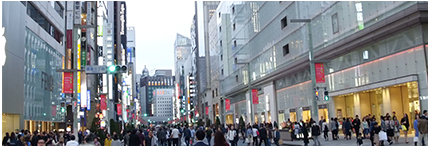Why Raise Consumption Tax If Abenomics Is to Bolster Tax Revenues? BY JUNICHI FUJIMOTO
August 2, 2013
Junichi Fujimoto was born in 1958. He is a journalist. After working for newspapers and magazines, he became a freelance journalist. Since 2003, he writes a series of political articles published under the heading of “Nagata-cho Waido-sho” for the daily newspaper “Tokyo Sports”. Among other books, he wrote “Nagata-cho Kitan (Curious Incidents at Nagata-cho)”(Fusosha Publishing). His blog is: http://fujimoto-junichi.blogspot.jp/
About the 8 percent consumption tax increase scheduled for next April, Chief Cabinet Secretary, Yoshihide Suga said on TV on July 28 that “the mission to exit from deflation is a huge one. The decision is not to be easily made, but it is better to show several indices and possibilities to the population. From these premises, taking into account the fiscal consolidation and the market’s trends, the Prime Minister will decide for himself.”
As he did in the past, Mr. Suga expressed the same view according to which the decision is to be made after the announcement of the second quarter’s GDP figure on September 9 and before the extraordinary Diet session which is going to be convoked at the beginning of October.
However, about the real condition of the Japanese economy which constitutes the prerequisite for consumption tax increase, the Governor of the Bank of Japan, Haruhiko Kuroda, in a talk he gave on July 29, expressed an optimistic view pointing out three components, namely “the fiscal environment”, “the population’s expectations”, and “the real economy/the cost of living” as “important factors. So far objectives are successfully being implemented”. He went on indicating that “the growth of Japan’s economy is not going to be impeded.”
Besides, Prime Minister Shinzo Abe who is expected to attend the G20 Summit from September 5 will rely on the next fiscal year ceiling guidelines for budget requests and the “mid-term fiscal plan” leading to the August fiscal reform of the Ministry of Finance, which have both as their premises the consumption tax increase.
Furthermore, on July 26, Shigeru Ishiba, Secretary-General of the Liberal Democratic Party declared to the press that, “for a sustainable fiscal condition and to avert a sudden fall or rise of government bonds, pushing back the consumption tax increase can hardly be thought of”.
Far from waiting for the last judgment by Prime Minister Shinzo Abe, the consumption tax increase has become inevitable. Is the population ready to endorse such a plan?
The Mainichi Shimbun recent polls indicate that 36 percent of the population think that “the tax increase is necessary, but the moment should be put off” and 35 percent said that “the current 5 percent consumption tax should be maintained”.
Also, 68 percent of taxpayers request that reduced tax rates for foodstuffs and daily necessities be applied when the consumption tax increase measures are implemented.
Why is the consumption tax increase necessary while tax revenues are supposed to rise thanks to “abenomics”? This interrogation roughly reflects the above-mentioned polls. There’s nothing else to expect but the betterment of the population’s condition of living.
[Excerpt from the Blog “Fujimoto Junichi ga ‘Seiji wo Yomitoku’”]
(Translated from Japanese by Willy Lukebana Toko)
Photo : Shinzo Abe (Wikimedia Commons/Author: Ogiyoshisan)







